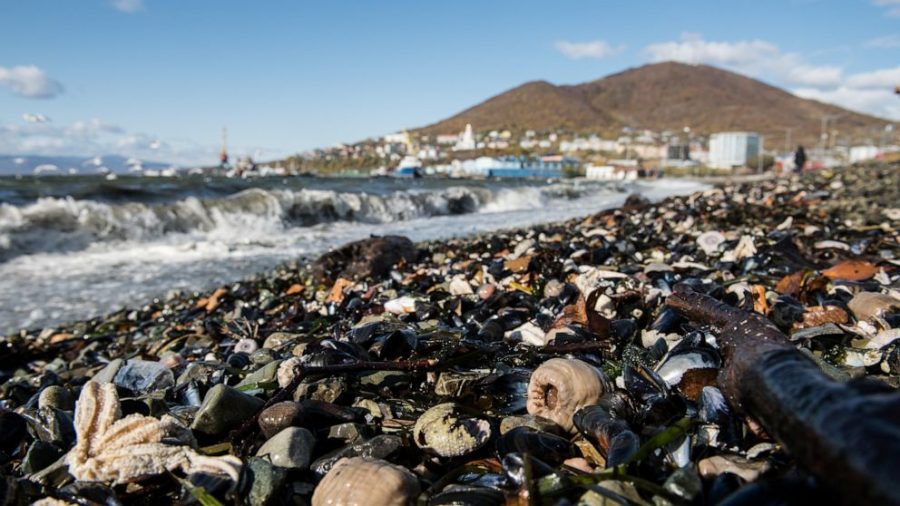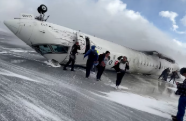Russian Beaches Covered in Thousands of Dead Aquatic Life
October 17, 2020
At Russia’s peninsula, Kamchatka, beaches have been covered by thousands of octopuses, sea urchins, seals, crabs, starfish, muscles, and more. Photos of the piles upon piles of dead sea creatures reveal the severity of the situation. Shocking statistics also indicate the scope of die-off; one being that 95% of sea life to the depth of 10 to 15 meters was dead. The area most affected is between the Avacha Bay and Cape Nalychev, which are 40 kilometers (25 miles) apart.
High levels of pollution led to the demise of many of these organisms. Elements such as phosphate ion, iron, and phenol were found in high quantities. The source of the pollution is still under investigation but current theories are thought to be due to blooming algae, volcanic activity, or human activity.
The origin of the event was first believed to be from a Russian rocket fuel leak because the beaches are close to the naval base. However, this cause was ruled out as well. Leaks of toxins from a nearby chemical dumping site were also deemed to be a cause of the massive die-off. Officials checked to see if this was true, but no evidence indicated any toxins leaking from the site.
Surfers initially noticed a peculiar color and odor coming from the water. Surfers then reported, after going into the water, to have a burning sensation in their eyes. Eight surfers suffered corneal burns. One surfer named, Rasul Gadzhiev, exclaimed that “We began to see that something was wrong with the water because after an ordinary surf you come out feeling good, but this time it felt like we had burned eyes, we couldn’t even see straight.”
Russian officials do not show too much concern for this devastating event and claim that because no humans were severely hurt, there is no reason to be overly worried. Greenpeace leaders, on the other hand, categorize this event as alarming and grave.
Daniella Herrera, a junior at Wayne Hills, sides with the Greenpeace’s perspective and exclaims, “I think its sad reflection of our actions as a society and our failure to put the environment and wildlife as our main priority.”







